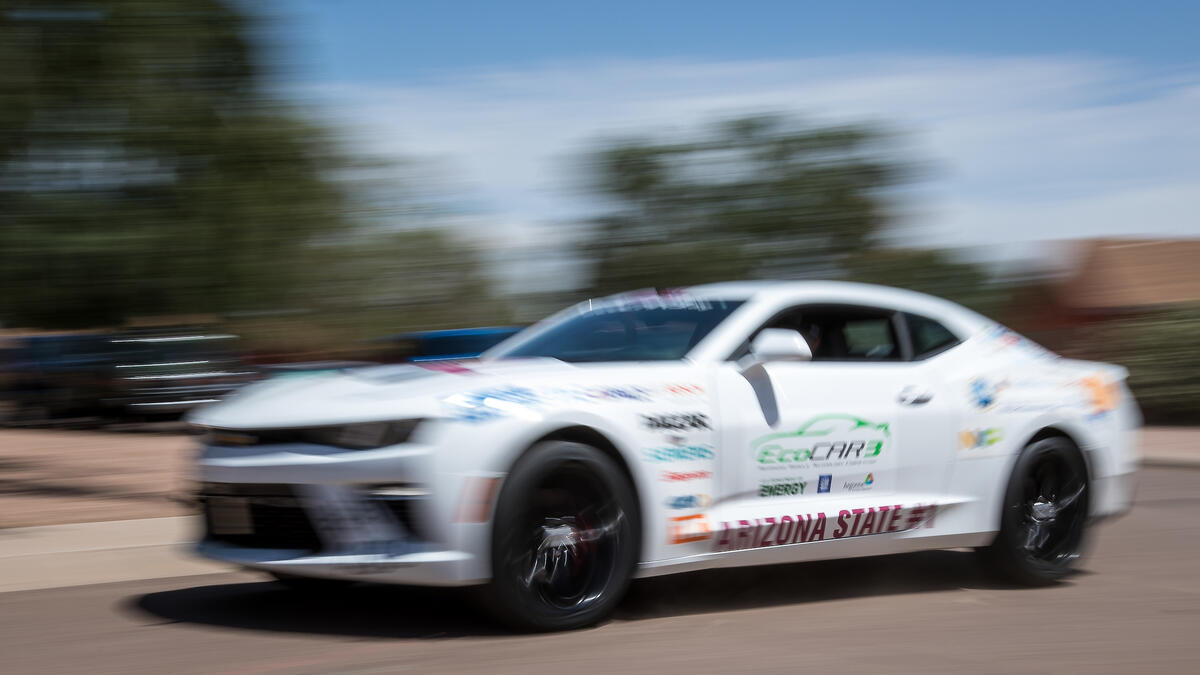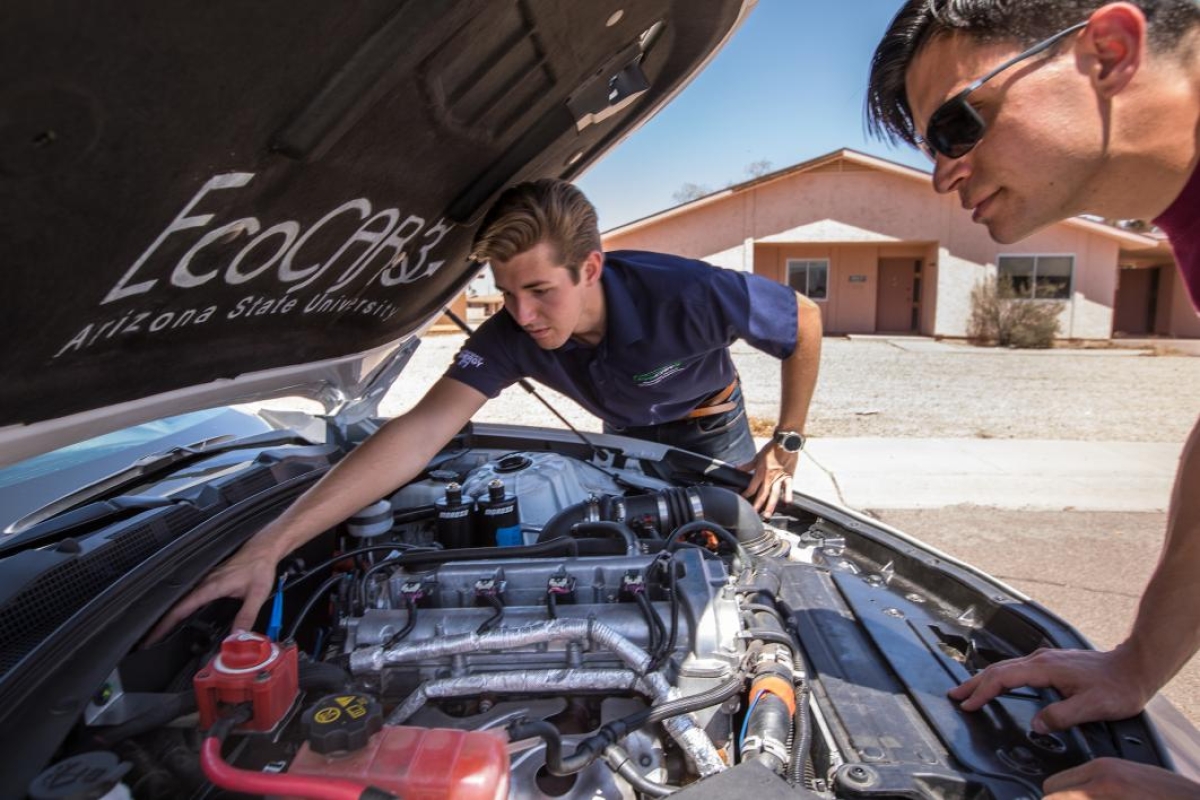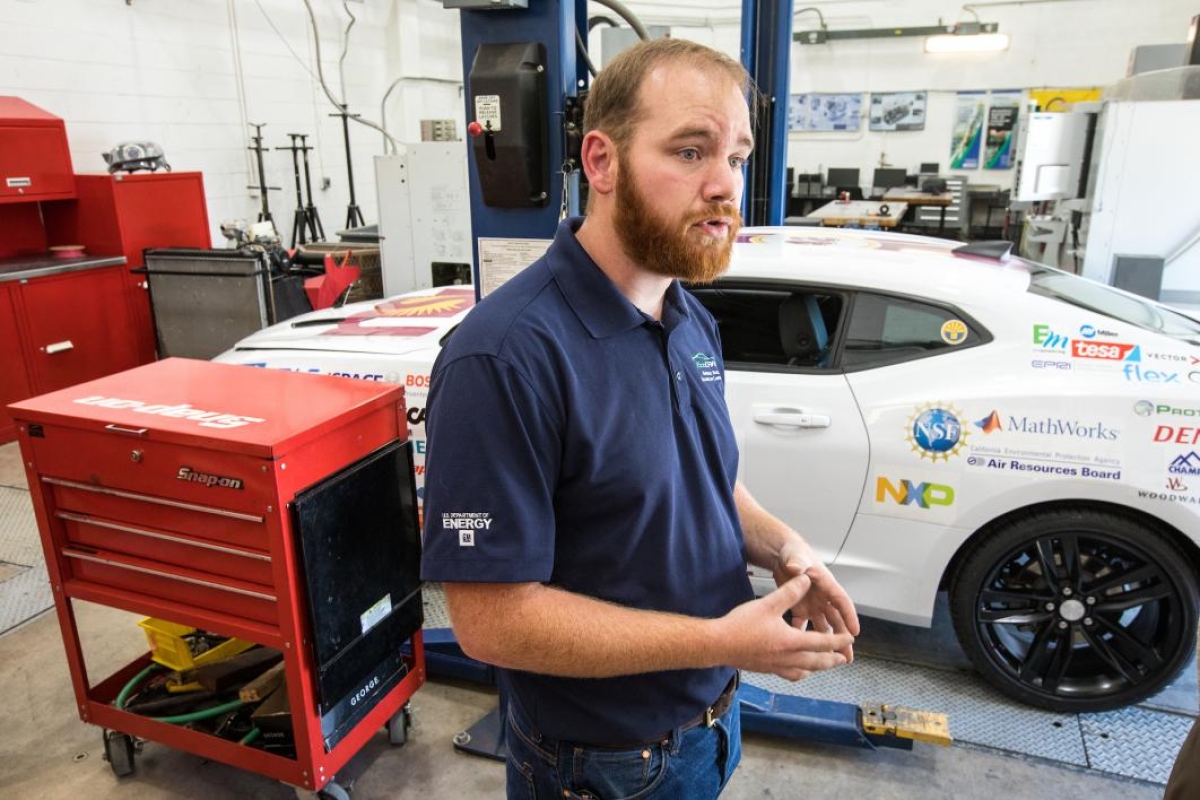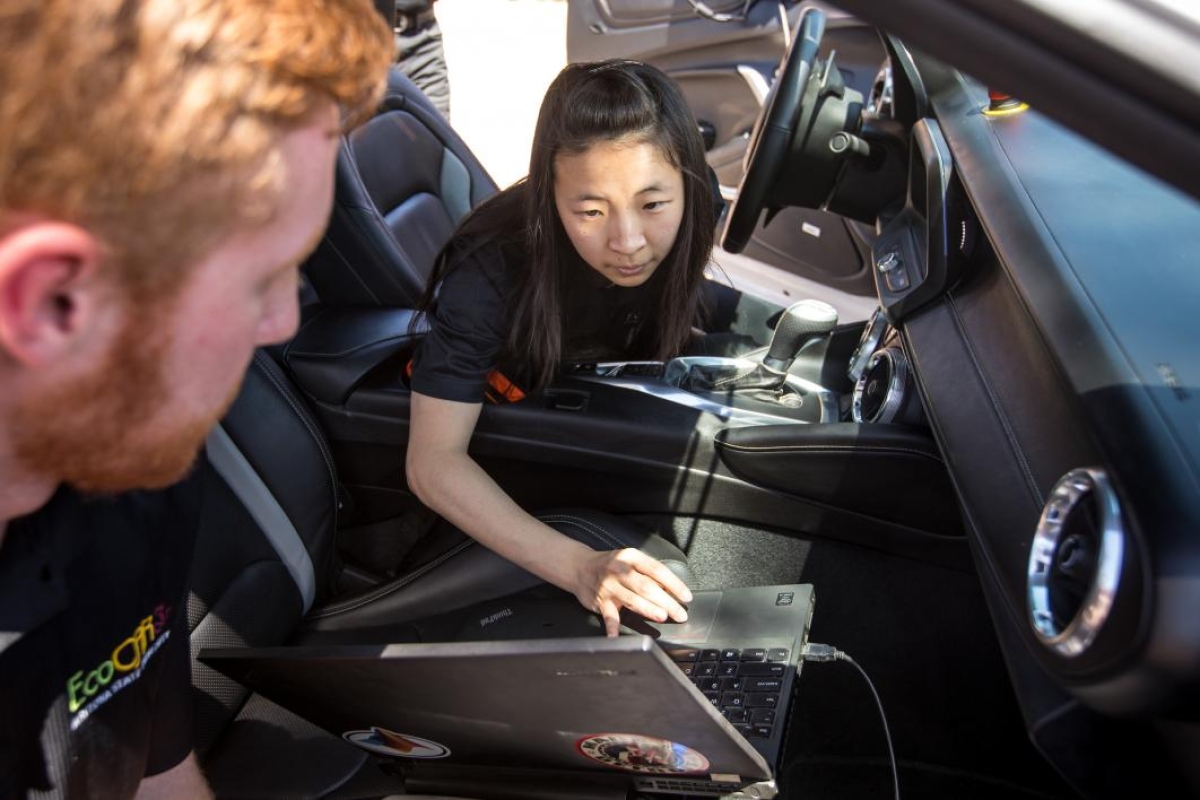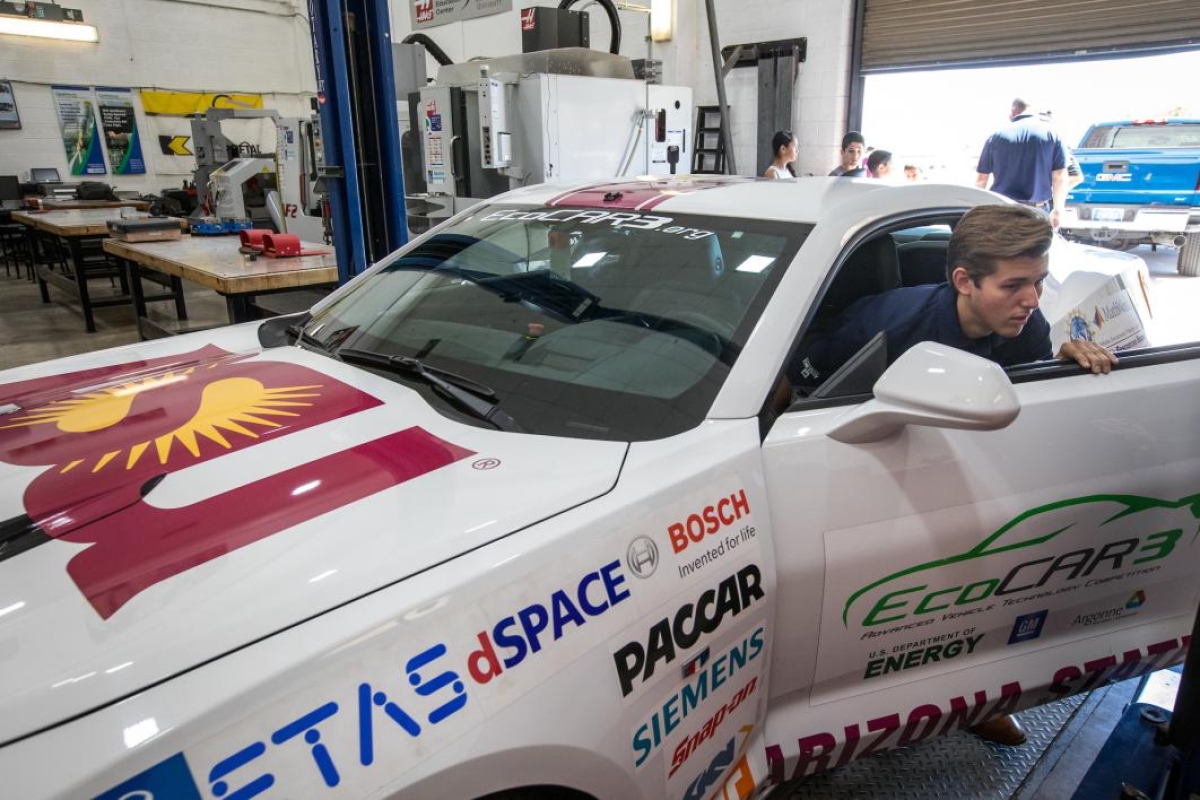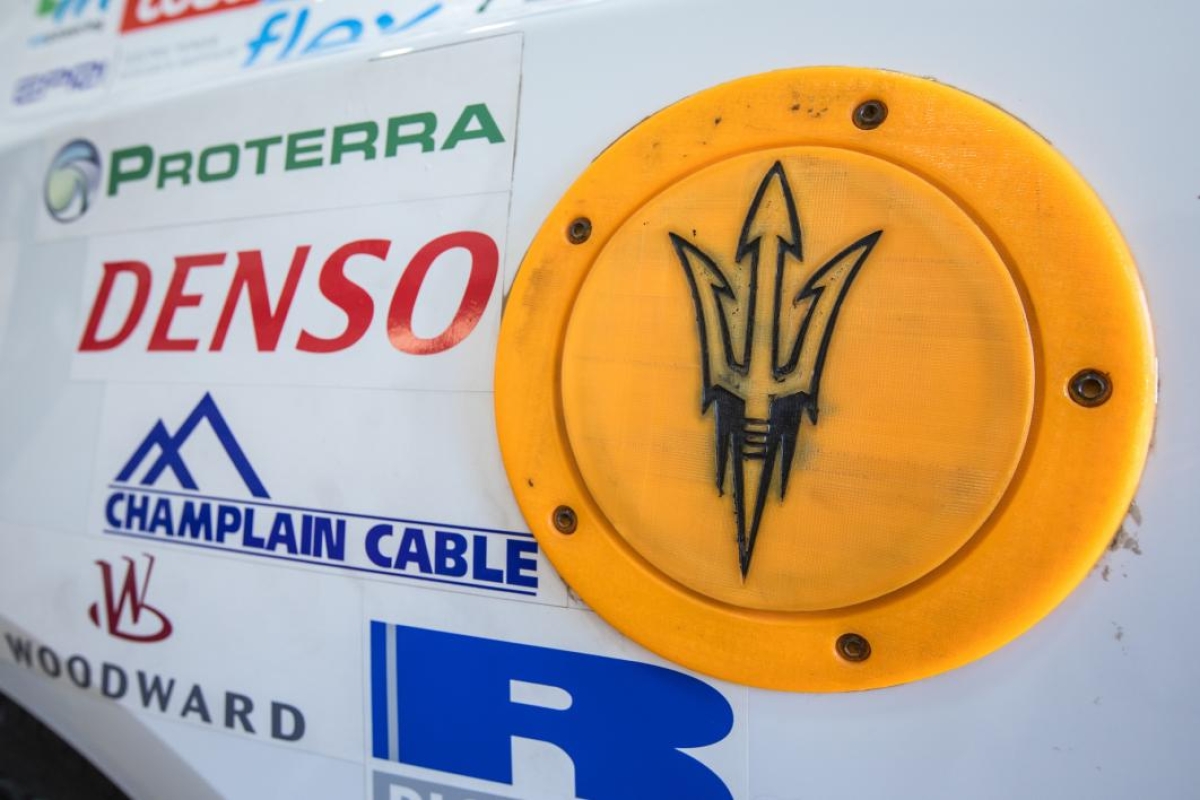The car may be a hybrid, but it’s still also a Camaro, so it’ll lay down that famous rumble on the track. But how will it hold up against the competition?
Arizona State University’s EcoCAR3 will be put to the test this week, the culmination of a four-year competition sponsored by the U.S. Department of Energy and General Motors. The aim is to build on the 26-year history of the Department of Energy's Advanced Vehicle Technology Competitions by continuing to develop the next generation of engineers and scientists. Sixteen universities took part.
General Motors donated a 2016 Camaro to the team. Their mission? Develop it into a hybrid — but keep the sports-car flavor intact.
Video by Ken Fagan/ASU Now
“This year’s car is the best it’s ever been,” said team communications manager Mattie Whitt, a junior majoring in business management.
ASU’s car can run in three modes. It runs on gas in conventional mode. In electric, it’s quiet and has a 40-mile range (good enough for most Valley commutes). When the batteries are drained, the gas engine kicks in. It also runs on a blended mode of both electricity and gas, a hybrid with the signature Camaro rumble.
“Obviously when we’re going out and buying a Camaro, as a consumer we want it to run like a Camaro, we want it to sound like a Camaro,” Whitt said. “I think sometimes when most of us think about hybrids, even in 2018, we’re thinking of a Prius; we’re thinking of a little bug driving down the freeway. That might be our first thought, that this isn’t the iconic Camaro we think of. The main objective of the competition is to get it to run like the performance Camaro we all know and love.”
The competition put industry-leading software tools and sophisticated powertrain components in students’ hands and pitted them against a real-world training ground of engineering constraints and technical challenges. About 30 students are on the team, and about 20 of them worked on the project daily.
Abdel Ra’ouf Mayyas, an assistant professor of automotive engineering in the Polytechnic School, one of the Ira A. Fulton Schools of Engineering, is the team’s lead faculty adviser.
“Over the course of the four years the students lived the developmental process that GM uses in making their products,” Mayyas said. “They used the cutting-edge tools and software and received state-of-the-art training by tier-one automotive suppliers as well as GM in order to be capable to make this car happen.
“Being a student as a member of the EcoCAR program is creating an exciting opportunity for students with real-world, hands-on experience that will enable them to be productive from day one as they join the industry,” he said.
The team members will be ready to roll. For some of them, that day is close.
“They’re gaining a lot of hands-on experience that will be easily transferrable into their industry roles they’ll be facing in a few months,” Whitt said. “Most of the team is graduating this year.”
The team headed off May 9. The first leg of competition will be at the GM Proving Grounds in Yuma, Arizona, the second at the Auto Club Speedway in Fontana, California, and finally to Hollywood to celebrate the competition and showcase the cars. The team will give about 12 presentations and demonstrations on safety and dynamics, design review, and track events as part of the competition.
“Is ASU going to win? It’s a little more complicated than that,” Whitt said. “We’re really excited for year-four competition. Go Sun Devils!”
Top photo: ASU's entry for the EcoCAR3 competition zooms by in a test run April 27 on the Polytechnic campus. The heavily modified gas/electric hybrid 2016 Chevrolet Camaro was transported to Yuma on May 9 to begin competing with 15 other university teams for its automotive technologies, energy efficiency and performance. Teams began working on plans for this Advanced Vehicle Technology Competition four years ago. Photo by Charlie Leight/ASU Now
More Science and technology

ASU and Deca Technologies selected to lead $100M SHIELD USA project to strengthen U.S. semiconductor packaging capabilities
The National Institute of Standards and Technology — part of the U.S. Department of Commerce — announced today that it plans to award as much as $100 million to Arizona State University and Deca…

From food crops to cancer clinics: Lessons in extermination resistance
Just as crop-devouring insects evolve to resist pesticides, cancer cells can increase their lethality by developing resistance to treatment. In fact, most deaths from cancer are caused by the…

ASU professor wins NIH Director’s New Innovator Award for research linking gene function to brain structure
Life experiences alter us in many ways, including how we act and our mental and physical health. What we go through can even change how our genes work, how the instructions coded into our DNA are…
